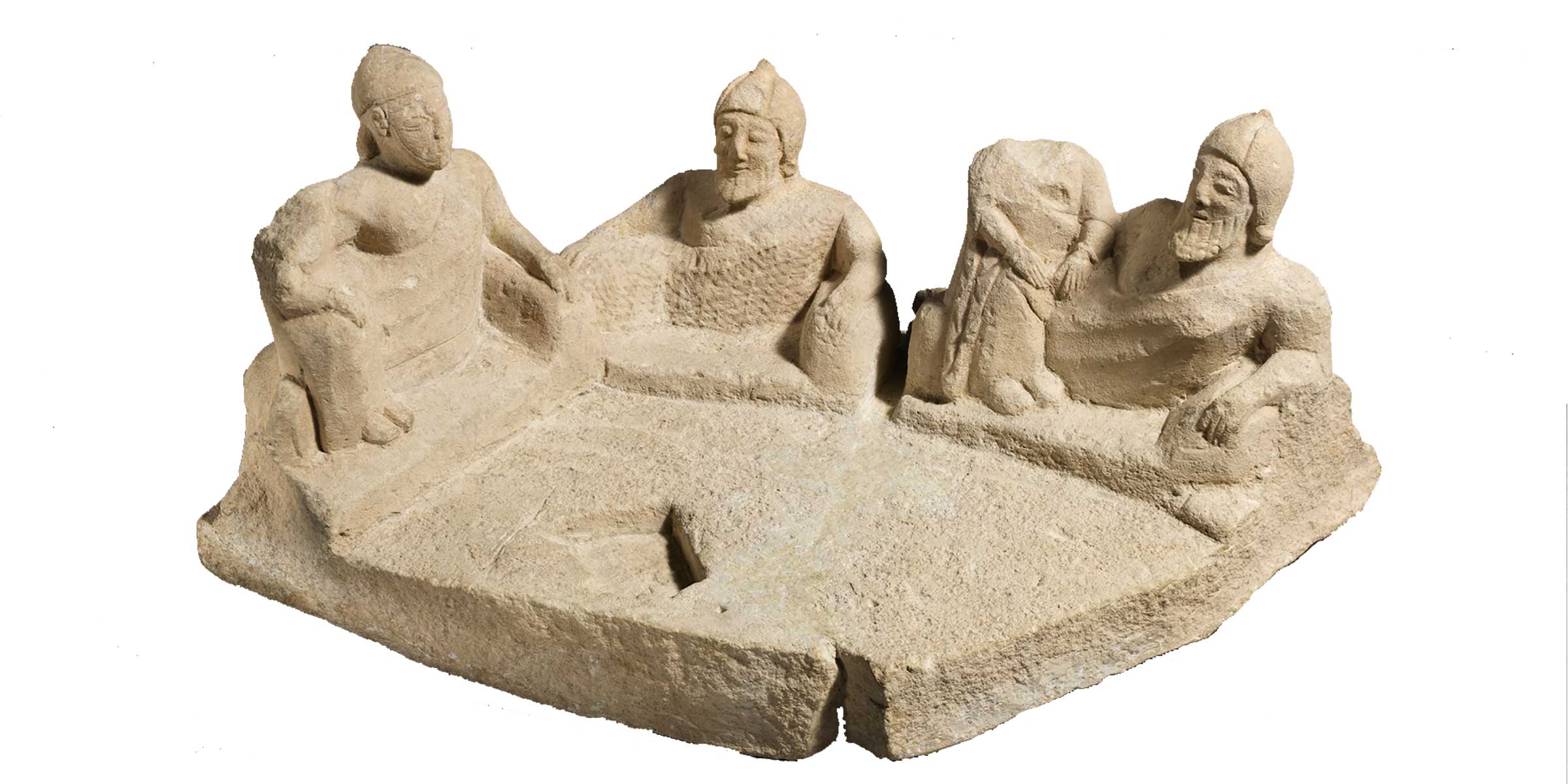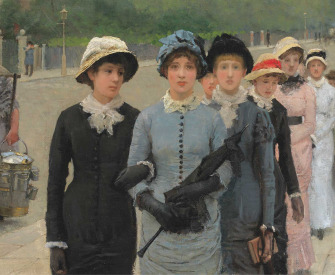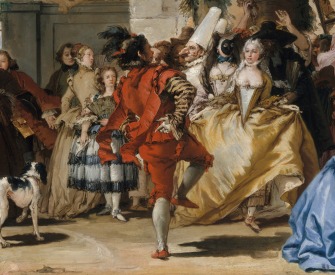Friendship was given by nature to be an assistant to virtue, not a companion to vice.
—Marcus Tullius Cicero, 45 BCRisky Business
Virginia Woolf weighs the pros and cons of a new relationship.
“How far can one live alone?” Denham asked. “Have you tried ever?”
“Once for three weeks,” Katharine replied. “My father and mother were in Italy, and something happened so that I couldn’t join them. For three weeks I lived entirely by myself, and the only person I spoke to was a stranger in a shop where I lunched—a man with a beard. Then I went back to my room by myself and—well, I did what I liked. It doesn’t make me out an amiable character, I’m afraid,” she added, “but I can’t endure living with other people. An occasional man with a beard is interesting; he’s detached; he lets me go my way, and we know we shall never meet again. Therefore, we are perfectly sincere—a thing not possible with one’s friends.”
“Nonsense,” Denham replied abruptly.
“Why ‘nonsense’?” she inquired.
“Because you don’t mean what you say,” he expostulated.
“You’re very positive,” she said, laughing and looking at him. How arbitrary, hot-tempered, and imperious he was! He had asked her to come to Kew to advise him; he then told her that he had settled the question already; he then proceeded to find fault with her. He was shabby, his clothes were badly made, he was ill versed in the amenities of life; he was tongue-tied and awkward to the verge of obliterating his real character. He was awkwardly silent; he was awkwardly emphatic. And yet she liked him.
“I don’t mean what I say,” she repeated good-humoredly. “Well—?”
“I doubt whether you make absolute sincerity your standard in life,” he answered significantly.
She flushed.
“Absolute sincerity is rather difficult, don’t you think?” she inquired, with a touch of irony.

Banqueters, Cyprus, sixth century bc. The Metropolitan Museum of Art, Cesnola Collection, purchased by subscription, 1874–76.
“There are people one credits even with that,” he replied a little vaguely. He was ashamed of his savage wish to hurt her, and yet it was not for the sake of hurting her, who was beyond his shafts, but in order to mortify his own incredibly reckless impulse of abandonment to the spirit which seemed, at moments, about to rush him to the uttermost ends of the earth. She affected him beyond the scope of his wildest dreams. He seemed to see that beneath the quiet surface of her manner, which was almost pathetically at hand and within reach for all the trivial demands of daily life, there was a spirit which she reserved or repressed for some reason either of loneliness or—could it be possible—of love. “I went back to my room by myself and I did—what I liked.” She had said that to him, and in saying it had given him a glimpse of possibilities, even of confidences, as if he might be the one to share her loneliness, the mere hint of which made his heart beat faster and his brain spin. He checked himself as brutally as he could. He saw her redden, and in the irony of her reply, he heard her resentment.
He began slipping his smooth silver watch in his pocket, in the hope that somehow he might help himself back to that calm and fatalistic mood which had been his when he looked at its face upon the bank of the lake, for that mood must, at whatever cost, be the mood of his intercourse with Katharine. He had spoken of gratitude and acquiescence in the letter which he had never sent, and now all the force of his character must make good those vows in her presence.
She, thus challenged, tried meanwhile to define her points. She wished to make Denham understand.
“Don’t you see that if you have no relations with people, it’s easier to be honest with them?” she inquired. “That is what I meant. One needn’t cajole them; one’s under no obligation to them. Surely you must have found with your own family that it’s impossible to discuss what matters to you most because you’re all herded together, because you’re in a conspiracy, because the position is false—” Her reasoning suspended itself a little inconclusively, for the subject was complex, and she found herself in ignorance whether Denham had a family or not. Denham was agreed with her as to the destructiveness of the family system, but he did not wish to discuss the problem at that moment.
He turned to a problem which was of greater interest to him. “I’m convinced,” he said, “that there are cases in which perfect sincerity is possible—cases where there’s no relationship, though the people live together, if you like, where each is free, where there’s no obligation upon either side.”
“For a time—perhaps,” she agreed, a little despondently. “But obligations always grow up. There are feelings to be considered. People aren’t simple, and though they may mean to be reasonable, they end”—in the condition in which she found herself, she meant, but added lamely—“in a muddle.”
“Because,” Denham instantly intervened, “they don’t make themselves understood at the beginning. I could undertake, at this instant,” he continued, with a reasonable intonation which did much credit to his self-control, “to lay down terms for a friendship which should be perfectly sincere and perfectly straightforward.”
She was curious to hear them, but besides feeling that the topic concealed dangers better known to her than to him, she was reminded by his tone of his curious abstract declaration upon the embankment. Anything that hinted at love for the moment alarmed her; it was as much an infliction to her as the rubbing of a skinless wound.
But he went on, without waiting for her invitation.
“In the first place, such a friendship must be unemotional,” he laid it down emphatically. “At least, on both sides it must be understood that if either chooses to fall in love, he or she does so entirely at his own risk. Neither is under any obligation to the other. They must be at liberty to break or to alter at any moment. They must be able to say whatever they wish to say. All this must be understood.”
“And they gain something worth having?” she asked.
“It’s a risk—of course it’s a risk,” he replied. The word was one that she had been using frequently in her arguments with herself of late.
“But it’s the only way—if you think friendship worth having,” he concluded.
“Perhaps under those conditions it might be,” she said reflectively.
“Well,” he said, “those are the terms of the friendship I wish to offer you.” She had known that this was coming but nonetheless felt a little shock, half of pleasure, half of reluctance, when she heard the formal statement.

Virginia Woolf
From Night and Day. According to her nephew Quentin Bell, Woolf took up work on this 1919 novel in an attempt to write “a perfectly orthodox and conventional novel,” something “sane, quiet, and undisturbing,” to avoid the mental turmoil her previous books had caused her. The process, however, soon bored her. “How I trembled with excitement,” she wrote to a friend of imagining a return to her favored experimental style, “and then Leonard came in, and I drank my milk, concealed my excitement, and wrote, I suppose, another page of that interminable Night and Day.”


